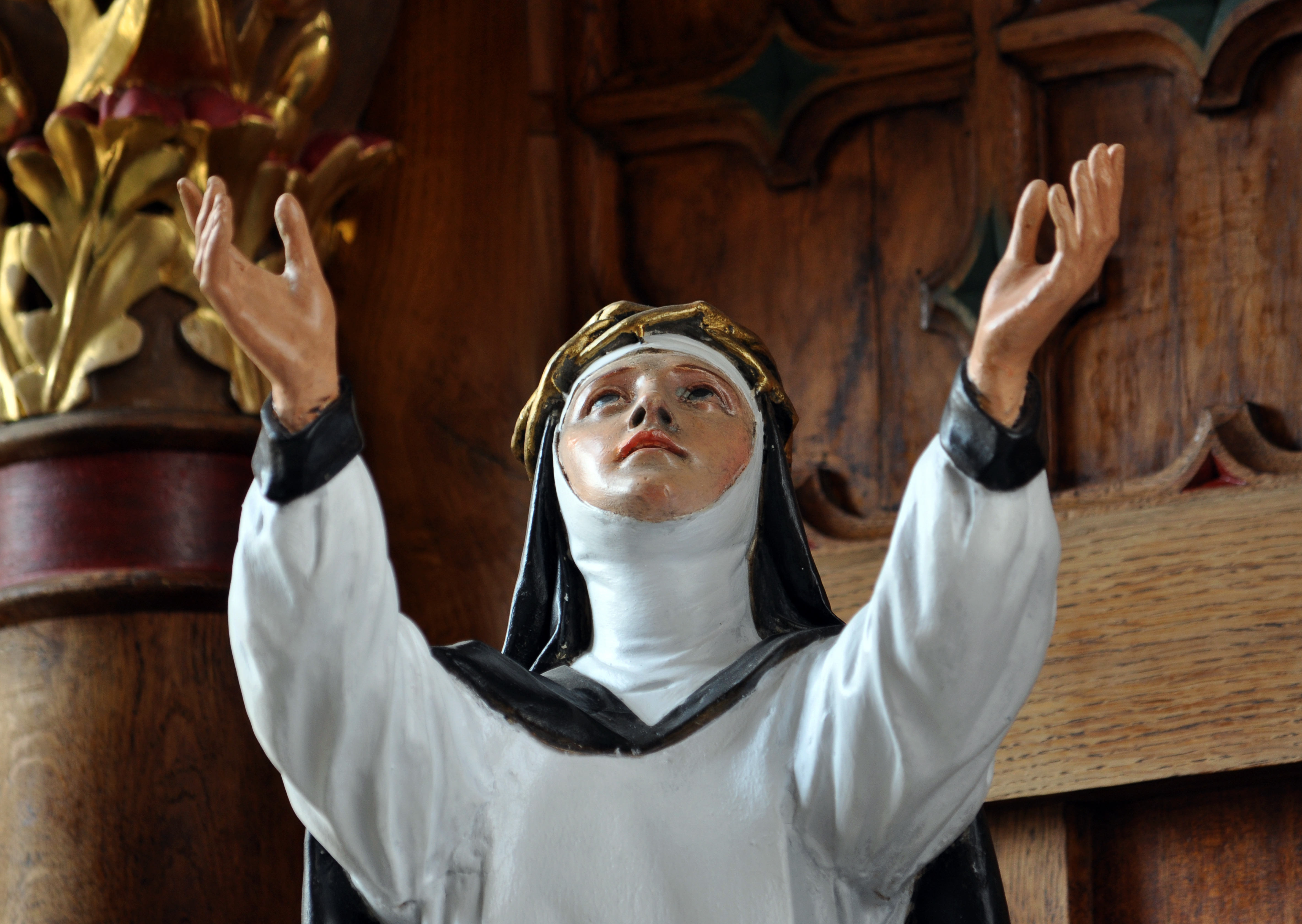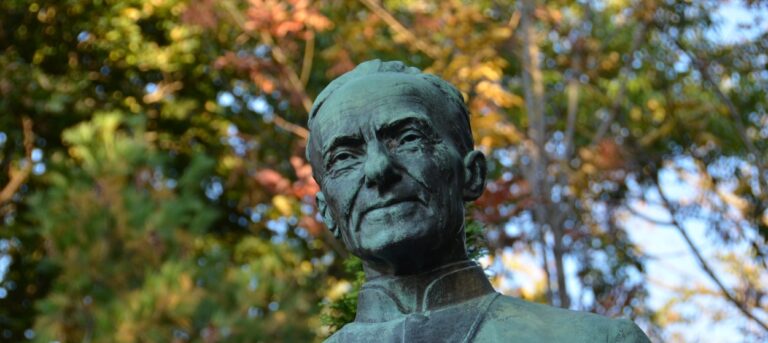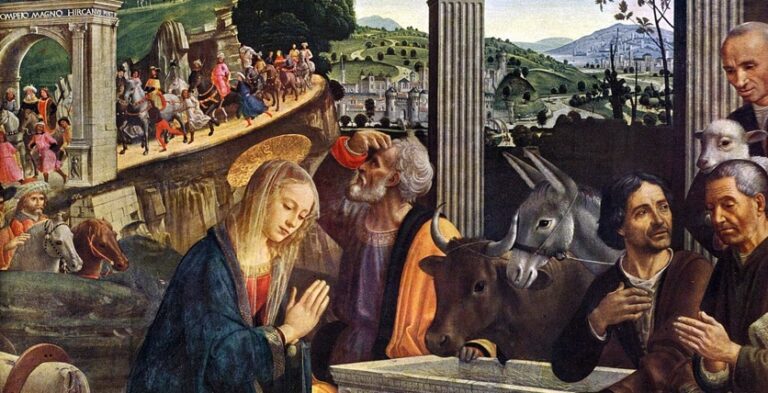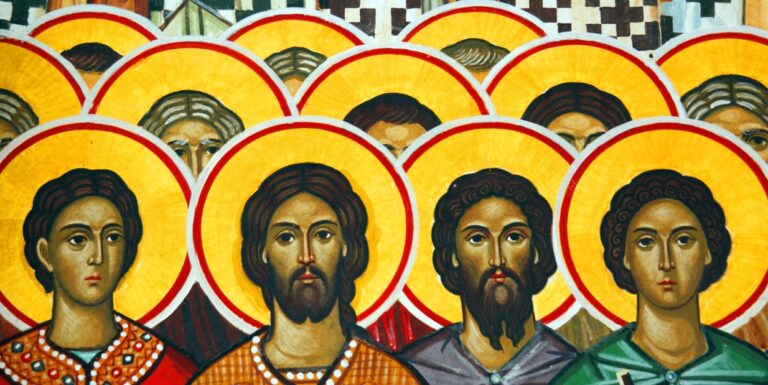
ST. CATHERINE OF SIENA: A SAINT FOR OUR TROUBLED TIME

If there was a saint for our current moment in history, St. Catherine of Siena should be the one. Consider the context she lived in.
It was late medieval Europe, during the years of the bubonic plague. Close to a third of the population of Europe died. In 1348, the year after St. Catherine’s birth, the pandemic caused some 80,000 fatalities in Siena alone. In Western Europe, the Hundred Years’ War raged on – lasting much longer than its name implies – and countless hostilities and battles between principalities, notably Florence and Rome, were the norm.
The state of the Church was not much better. It was a time when the papacy was living in exile in Avignon, France. People feared the rise of an anti-pope. The moral state of the secular clergy was at an all-time low while – in the absence of a Pontiff with power – the States of the Church were governed harshly by papal representatives who were not always men of good character, profiting on the backs of the poor. On top of all this, there were seeds of heresy budding north of the Alps with the preaching of John Wycliffe.
While it’s difficult to compare historical eras, consider our seemingly never-ending covid-19 pandemic with its unequal toll on front-line workers and marginalized communities, the after-math of an ugly election in the US, as well as Donald Trump’s continuing legacy of fear and hate, the cruel murder of George Floyd which justifiably sparked a Black Lives Matter resurgence for racial justice, the numerous armed conflicts that have blighted the globe – as I write this Russia is massing troops near Ukraine – the devastating fires in Australia and California, not to mention the increasing realization that our current climate change trajectory means extreme weathers like we saw in 2020 will now be the norm for centuries to come.
Consider the state of our Church today which is facing its own crises. The more recent revelations of sex abuse of children by clergy and the abhorrent cover-up of these acts by some Church hierarchy have left a rancid taste in the mouths of Catholics everywhere. We have both a Pope and a retired Pope co-existing, each with divergent views of Church. In fact, the wide division among Catholics around the world is palpable and growing, with some bishops openly challenging the current Pope and some Catholics yearning for a return to a pre-Vatican II epoch. On top of all this, Catholics are increasingly choosing not to remain active in parish life, a reality hastened by the pandemic.
So why do we need St. Catherine today?
Not only was this young woman (she died when she was only 33) a remarkable peace-maker among opposing secular parties, she was adept at forging harmony between secular states and the Holy See. She possessed such self-confidence – anchored in her certainty that God loved her – that she was able to convince the Pope at Avignon to return to Rome. This woman was a counsellor for the mighty, a healer for the sick, a consoler for the poor and a mystic for the spiritually-wary.
After a year of incessant isolation, lock-downs, losses of loved ones and livelihoods, of being overwhelmed by the inane violence and acerbic divisions that have marked our time, it is only natural to fall into despair, anger and even hatred.
How much more remarkable, then, is St. Catherine’s message to us that our souls are trees made for love; that these trees need to be planted in the soil of humility, which will help us realize who we really are; and once we become who we were created to be, we will set the world on fire!
St. Catherine’s image-rich writings recount her many dialogues with God who professes a profound love for us all. God conveys to Catherine that we, in turn, are to love our neighbour and without any concern for profit or thanks.
Following St. Catherine’s lead, then, we do not seek to divide, cast stones or look for weaknesses in others. Instead, like her, we see others as trees of love.
Simon Appolloni is Associate Publishing Director at Novalis. He has a PhD in religion and environmental studies and a Master of Divinity. Simon finds meaning through music, sharing in community, and the pursuit of a just and sustainable world.



A very beautiful reflection. Thanks!